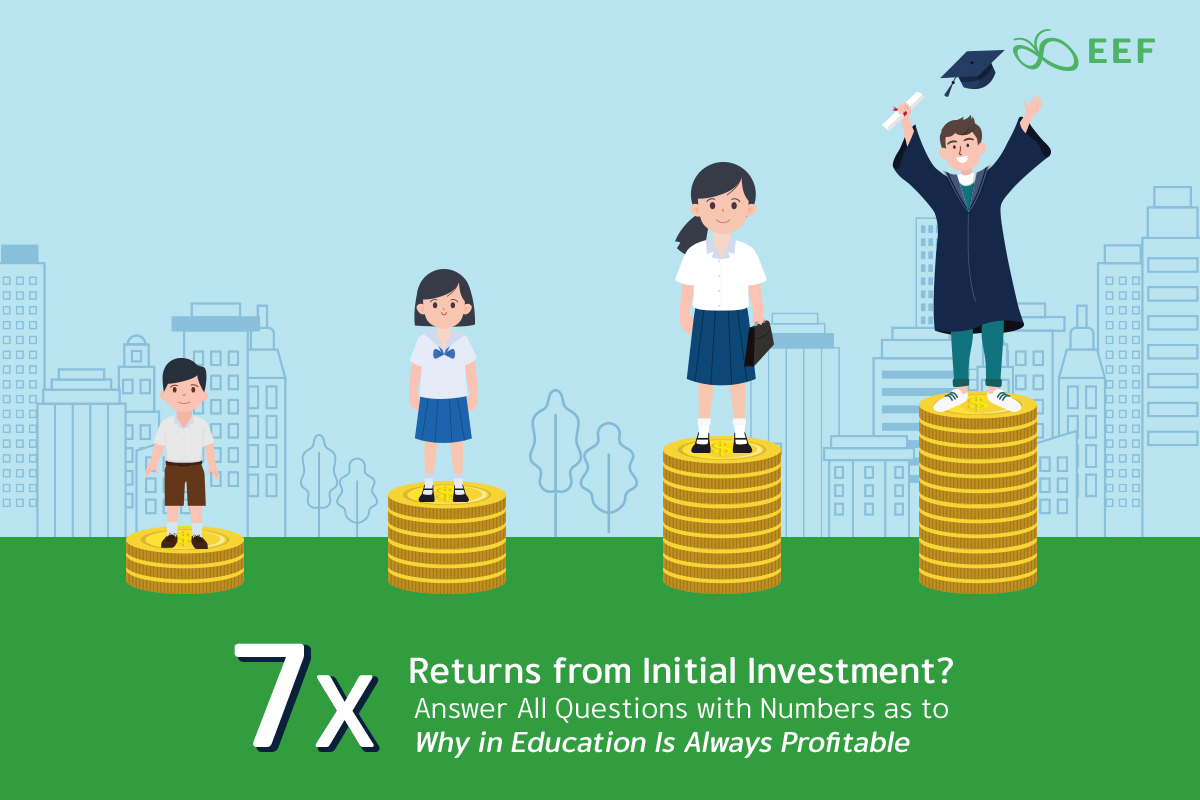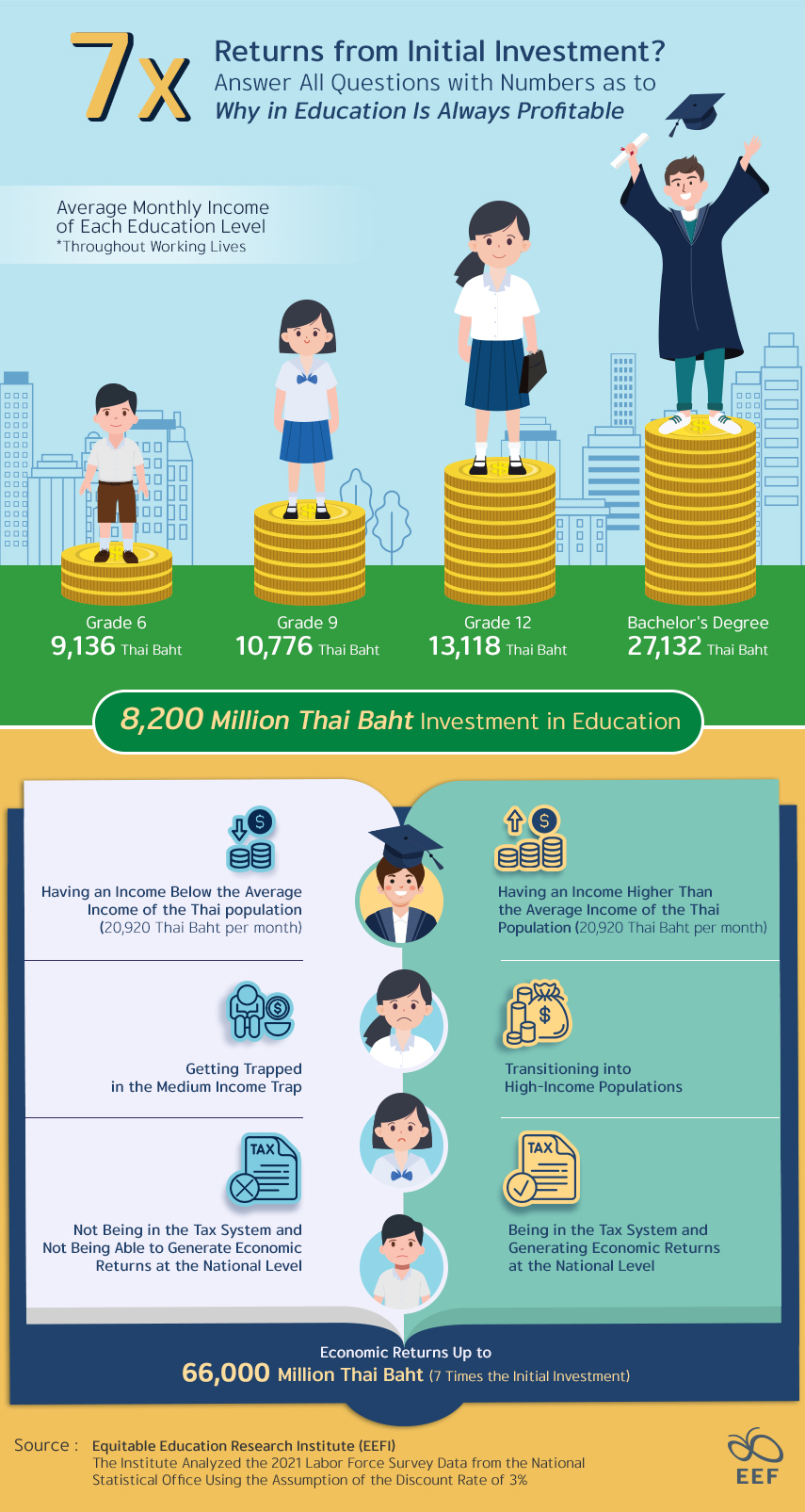
Investment in Education Today Guarantees Future Returns to Be Up to 7 Times the Investment
What Would Happen If All 20,018 Students in the Poor and Very Poor Groups
Had the Opportunity to Graduate with a Bachelor’s degree?
Now, many children have fallen out of school, especially those transitioning (In Thailand Education System) from Grade 6 to Grade 7, Grade 9 to Grade 10 (High School), and Grade 12 (High School) to university. During breaks between semesters, they disappear from the system and have not returned to study. This especially occurred during the COVID-19 crisis-affected period. The economic circumstances prompted many parents to lose their jobs, many households to lose their incomes suddenly, and many children to turn their backs on education to help their parents earn financial income.
According to the Equitable Education Fund (EEF) Thailand, there were 148,021 students in the “poor” and “very poverty” groups under the Office of the Basic Education Commission (OBEC) in the academic year 2018, but only 62,042 of them entered to the education system at the high school level. Moreover, only 20,018 of them confirmed their rights in the Thai University Central Admission System (TCAS) – the academic year 2022, which makes up only 13% of the total number. This sheds light on the fact that poor and very poverty students’ educational paths are on the risk line, and education support needs to assist students to stay in the system.
The data revealed that it will cost approximately 8,200 million Thai Baht — or an average of 410,000 Thai Baht per student — to enable 20,018 poor and very poverty students to graduate with a bachelor’s degree. With this investment, the youth will earn an average of 27,132 Thai Baht per month throughout their working lives, which is more than one time greater than what they would have earned without a bachelor’s degree — which is only 13,118 Thai Baht per month.
The data also showed a direct correlation between a level of education and an increase in average monthly income — the higher the education level, the higher the average monthly income;
- Working-aged individuals with a Grade 6 education throughout their working lives have an average income of about 9,136 Thai Baht per month
- Those with early secondary education — 10,766 Thai Baht per month
- Those with a high school education — 13,118 Thai Baht per month
- Those with a bachelor’s degree — 27,132 Thai Baht per month
In addition to raising average incomes for youth, investment in education also directly affects each household’s quality of life and contributes to the growth of the population in the tax base system, given that the average income that is currently eligible for tax payment is more than 26,583 Thai Baht per month. As a result, they will be able to generate economic returns for the country that could total up to 66,000 million Thai Baht or seven times the initial investment of approximately 8,200 million Thai Baht. In the end, this will assist Thailand in becoming a high-income country.
For all of these reasons, the EFF is now concentrating on investments in education to raise the rate of tertiary education among poor and very poverty students to above 20% within the next 5 years and boost their parents’ purchasing power through the household support fund and the Conditional Cash Transfer (CCT), so they can continue to afford to enroll their children in the educational system.
And for this to happen, the databases of the student persistence tracking system need to be connected from early childhood on, so that students can transition seamlessly to higher education or the equivalent, and measures — be put in place to encourage local and private investment to prevent youth from underprivileged households from sustainably leaving the educational system. Only by doing so will more than 2.5 million Thai students below the poverty line have a better quality of life in the future.


